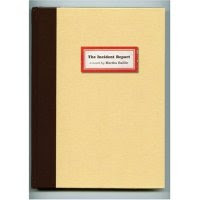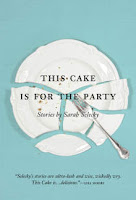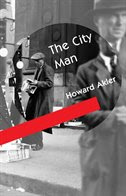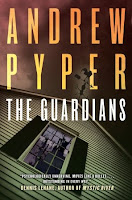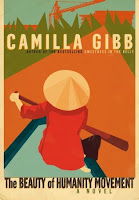 Light Lifting, Alexander MacLeod’s remarkable book of short stories, was our book club selection this month. I have to admit I did complain a little about reading yet another short story collection. In my mind, I’d grown a bit weary of the format and wanted something a little juicier, a little longer, to dig my teeth into. The women in my club are the smartest book people around and we have amazing discussions about books but this was our third story collection in a row and I had very mixed feelings about the other two.
Light Lifting, Alexander MacLeod’s remarkable book of short stories, was our book club selection this month. I have to admit I did complain a little about reading yet another short story collection. In my mind, I’d grown a bit weary of the format and wanted something a little juicier, a little longer, to dig my teeth into. The women in my club are the smartest book people around and we have amazing discussions about books but this was our third story collection in a row and I had very mixed feelings about the other two.
But I’ve come to a very different conclusion after reading Light Lifting. I’m not tired of the short story. I’m tired of reading uneven collections where the stories are too dependent on quirks for them to be plausible and/or plot-worthy. With Light Lifting, and like The Lemon Table, I was ridiculously impressed, not only by the quality of the writing, but also by the cohesiveness of the stories themselves within the book. MacLeod hasn’t written a linked book of short stories but each of the pieces includes are complete in a way that many lesser writers, some of whom we’ve read over the last few months in our book club, fail to achieve with any consistency.
There are real people between the pages of Light Lifting and while they all undergo some sort of life changing event, the writing around it remains subtle, metaphors don’t stick out like sore thumbs, nothing supernatural happens, there’s nothing ‘put-upon’ in terms of their suffering — things just happen. Neighbourhoods change. Plants shut down. Fights break out in bars. But it’s the intersection of these events and the places where his characters in his stories are in their lives that combine to create a remarkable moment. Someone at book club described it as pivotal — something you don’t realize at the time, or you do but it takes some time to reflect — and one is forever changed.
I would hate to single out one story as my favourite among such rich bedfellows. But, as I always read so personally, the last story, “The Number Three,” about a man who killed his wife and son in a tragic car accident, ripped open my heart and splayed it out — I bawled. I mean, of course I did, even from the very first sentence, I knew I didn’t have an emotional chance against this story: “The single fried egg might be life’s loneliest meal.” The psychological ramifications of the accident, regardless of whether or not it was his fault, are deep. And ironic, as he was a career man working for GM, and story’s title plays on ideas of the big three, and the decline of the industry in general. So much is taken away from this protagonist, and even when there’s a moment where he might take a step forward, the palpable pain that prevents the step is achingly apparent. It’s just damn fine writing.
And in another bit of fine “life equals art” moments: there’s a part in “Wonder About Parents” where the dad takes the baby, five months old or so, into the change room and discovers she’s pooped so much that it’s easier just to throw her outfit into the trash and carry on. They’re on a road trip, heading home for the holidays, and the baby isn’t well. His wife makes him go back and retrieve the clothes, they were a gift, they can be washed — clothes are expensive. He does. Well, we were discussing that particular moment when the RRBB had his own, ahem, explosion at book club and I contemplated throwing all of his clothes out, but didn’t, because he was wearing a pair of pants that I adore, that were also a gift. But, goodness, the child had poo IN HIS HAIR.
Overall, it was a wonderful book club brunch, and every single one of us loved the book. It’s up there in terms of one of the best I’ve read so far this year (but The Illumination still holds the crown thus far, I think). But I’d highly, highly recommend this book — in fact, I’d be happy to pass my copy along to anyone who might want to read it, I loved it that much. Light Lifting needs to be shared, discussed, and celebrated — it’s that good.
